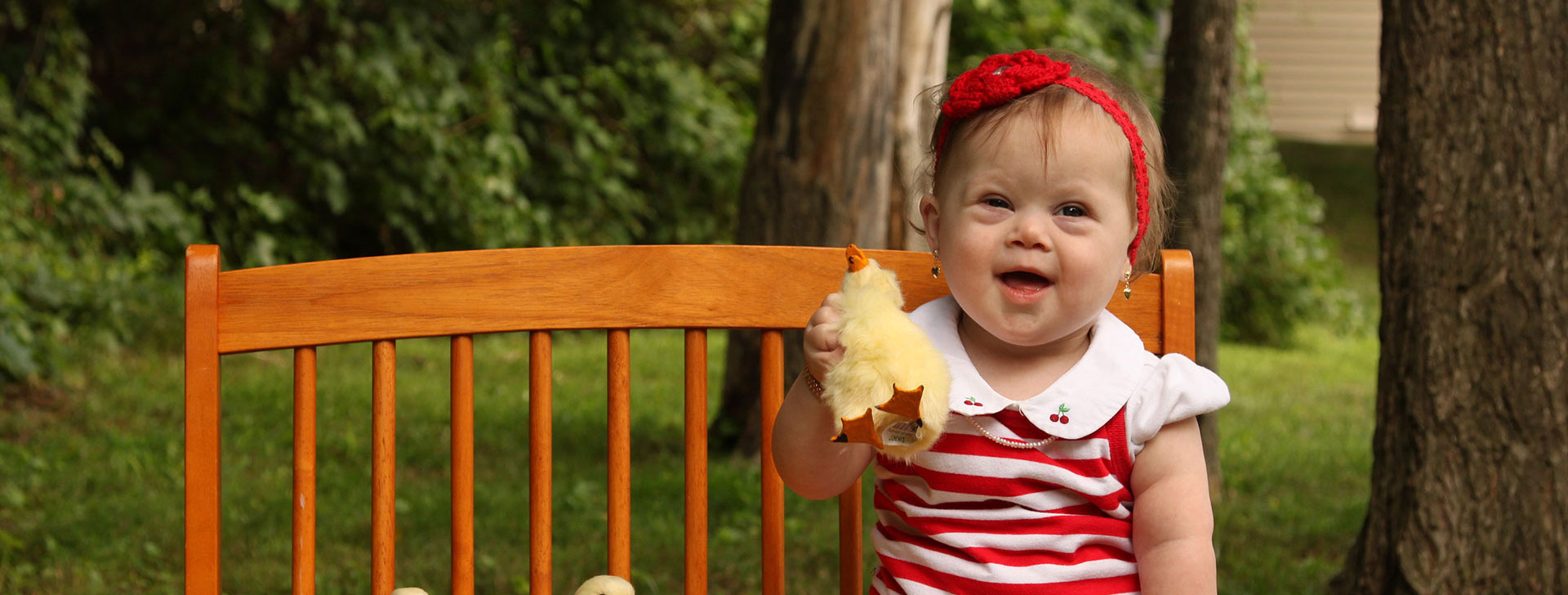Miriam T.
My son Shmuli was born via repeat C-section after an uneventful pregnancy. I was not considered in a high-risk category (whatever that means…) and there was nothing unusual noted throughout the term. Needless to say, we were in a state of shock when we were told our son had Down syndrome.
My obstetrician was very kind and compassionate. He arranged that no roommates be brought in to share my hospital room, and stopped by often to see how my family and I were adjusting to the news. B’H, we had a support network and were dealing as best as could be expected. Within 24 hours though, the whirlwind started. A pediatric resident informed me that there were some cardiac complications. Every few hours, groups of doctors, residents and medical students came in to my room and examined my baby. They talked among themselves, but whenever I asked for status updates, the response was always the same…the lead cardiologist will be in to speak with me.
A full day and a half passed before the “lead” came in. He came in with his group of residents and medical students and introduced himself as the associate chief of pediatric cardiology of this renowned teaching hospital. Before I had an opportunity to utter a word, he went into full teaching mode, asking the group questions and testing them on their knowledge of the diagnoses and interventions. All the time, he spoke to them but never addressed me directly. When I tried to interject, one of the residents waved his hand and held up one finger…as if to say “hold on, one minute”. They prattled on. And then I heard it….
Dr. Associate Chief, who always referenced me or my family unit in third person, told the group “Members of this community usually give these babies up to foster care.” My first reaction was “Huh? Is he talking about me? What is he talking about?? Who does he mean by “this” community??” Before I had a chance to comment, the group moved out of the room. One of the residents popped his head back in and said someone would soon be back to talk to me.
Over the next two days, while residents came by often and offered generic advice, they always deferred to Dr. Associate Chief for the final word. He only came by in the context of rounds with his trainees in tow and always was aloof and dismissive. He never spoke to me directly.
On discharge day, Dr. Associate Chief came by along with a few of his residents. He proceeded to talk over me, as usual, talking about prognosis and outcomes. He finally addressed me directly and told me that it wasn’t if, but when my son would go into heart failure, and when that happens, just get to the ER quickly. He finished his instructions by reiterating his previously mentioned cultural bias by telling me, “of course, in your community you can always put your son in placement, so these issues will be all moot.” He started to leave the room without giving me a chance to ask any questions. By this point, my anxiety and frustration levels were through the roof. I boldly told Dr. Associate Chief that I don’t know what community he was talking about, but as far as I am concerned, I drove a 1974 Plymouth until 1990 (true story…who remembers the kollel clunkers in the Lakewood parking lot??) and if I invested in a beat-up car, I will most certainly invest in my child who may need a lot of support!!
I couldn’t get out of that hospital fast enough. We drove straight to my pediatrician’s office. I needed him to tell us what to expect and give us step by step instructions of what to do if my son’s condition suddenly deteriorates.
My pediatrician, Dr. D. (who should be gebentched to continue to treat our children ad meah v’esrim), imparted sage advice that I have been privileged to share with many new mothers who have joined our ranks. He said, “Mrs. T., go home and love your baby. Treat him as you did all your other babies. Don’t let a cloud of fear overtake your days, waiting for a mysterious shoe to drop. If something seems off, just call and we will deal with it. Otherwise, just revel in the joy this neshama will give you.” (He also referred us to another cardiologist at a large teaching hospital who became Shmuli’s cardiologist for the next 21 years).
My pediatrician was right. Instead of being guided by fear, we were guided with kindness. That “imminent crisis” B’H never came as described by Dr. Associate Chief, though there were many serious bumps along the way. Throughout the years, despite whatever has come our way, Dr. D.’s advice has and continues to ring true.

